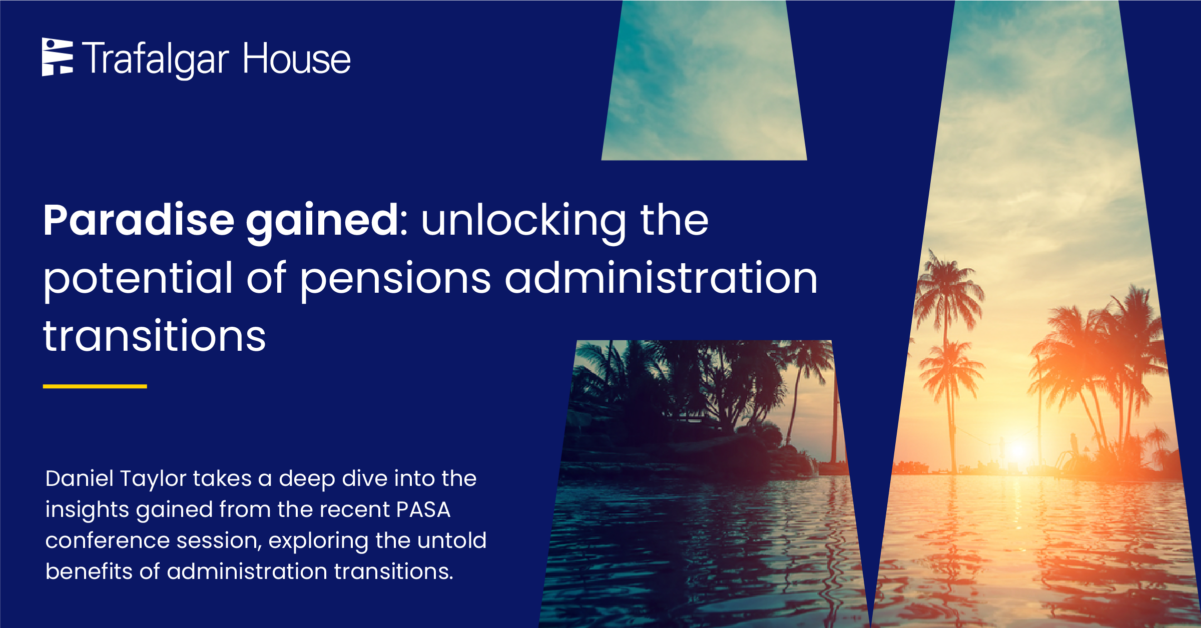The Post Office Horizon scandal, a lesson in leadership
What can business leaders learn from the Post Office Horizon scandal and how does it relate to pensions administration? Join Daniel Taylor, our Client Director, to find out.


The Post Office Horizon scandal, a lesson in leadership
The Post Office Horizon scandal, a significant event in UK corporate history, serves as a vital case study with both business and personal lessons for leaders, myself included. This incident transcends the specifics of technological failure and highlights broader themes about leadership, values, and the human impact of business decisions. As we delve into the intricacies of this scandal, it’s important to recognise the dual nature of the lessons it imparts – those that apply to business practices, particularly also relevant for pensions administration, and those that resonate on a personal level with every business leader.
Looking at the actions and impact of the Horizon scandal can help us understand how such a failure occurred and ensure that the hard-earned lessons contribute to better decision-making and more ethical leadership in our own professional journeys. As we unpack the layers of this scandal, we find insights that are relevant not just for those directly involved, but for anyone in a position of leadership. This includes a reassessment of how we view technology, listen to our teams, handle mistakes, and, most importantly, how we align our actions with our core values.
Technology is a tool, not a panacea
The first lesson, especially for pensions administrators, is to recognise that technology, though transformative, is not a cure-all. The Horizon system’s failures stemmed from an over-reliance on its infallibility. As we integrate more sophisticated systems into pensions administration services, it’s crucial to remember that these systems are as prone to errors as their human creators. This awareness necessitates robust error-checking protocols and a readiness to address technological shortcomings swiftly.
The value of front-line insight
The Horizon scandal was exacerbated by ignoring the concerns of sub-postmasters. For pensions administrators, this translates into valuing the insights of those who interact with the systems daily. These individuals often spot issues that higher-level analyses might miss. Listening to ‘experts on the ground’ can provide early warnings of potential problems.
Thorough review processes
Another key takeaway is the importance of not glossing over reported issues. In the pensions industry, this means having processes to thoroughly investigate, review and address errors. A system of regular checks and balances is imperative to ensure that minor glitches don’t snowball into significant crises.
Independence in auditing
The Post Office Horizon scandal brings into sharp focus the importance of pensions administrators engaging in and performing audits through independent audit and assurance frameworks. Such frameworks, including AAF 01/20 and various ISO standards, are pivotal in ensuring that the systems and controls in place are effective, reliable, and trustworthy.
For pensions administrators, participating in these frameworks is not just about compliance; it’s about committing to a higher standard of accountability and operational integrity. Engaging with these frameworks means working closely with auditors who provide an essential layer of independence. This independence is crucial as it ensures that audits are conducted objectively, free from any internal biases or conflicts of interest.
People-first
Perhaps the most crucial lesson is the enduring value of a people-first culture. The Horizon scandal showed the devastating consequences of prioritising technology over people. In pensions administration, respecting and valuing human input, expertise, and feedback is vital. Technology should be a tool to enhance, not replace, human judgement and expertise.
Broader comparisons and lessons
The Horizon scandal is not the only instance where technology has failed in high-stakes situations. The finance sector has seen similar issues, where algorithmic trading has sometimes led to significant market disruptions. These instances reinforce the need for a balanced approach to technology, integrating human oversight with automated processes.
Responsibility and integrity in leadership
The lessons of the Post Office Horizon scandal extend beyond the realms of technology, resonating deeply with all business leaders, including myself. This episode underlines a critical aspect of leadership: the courage to challenge prevailing narratives, especially when they threaten to undermine our core values and harm lives.
As leaders, our decisions are often made from behind desks, seemingly detached from the front lines. Our actions might not appear as immediately impactful as those of a hero in a crisis, but they hold immense power. Our true bravery is manifested not in grand gestures, but in the humility to admit when we are wrong, the willingness to re-evaluate our beliefs in the face of new evidence, and the integrity to put people before organisational narratives.
It’s a sobering reminder that protecting a brand should never come at the cost of human wellbeing. Brands, after all, are constructs – they have no intrinsic value beyond what we assign to them. The true measure of a brand’s worth lies in how it treats its people, responds to errors, and aligns its actions with its professed values. In trying to shield a brand from short-term damage, we must be wary of causing long-term harm to the trust and wellbeing of those who work within and rely on us.
This scandal teaches us that leadership is not just about steering a company towards profitability or innovation. It’s about fostering a culture where people feel heard and valued, where their concerns and insights are taken seriously, and where ethical considerations take precedence over reputational concerns. We, as leaders, must strive to ensure that our organisations are not just successful, but also principled and humane.
In essence, the Post Office Horizon scandal is a call to action for all business leaders to revisit our core values and ensure they are deeply embedded in every decision we make. It reminds us that our greatest responsibility is to the people we serve, and our greatest strength lies in our ability to listen, learn, and lead with integrity.


